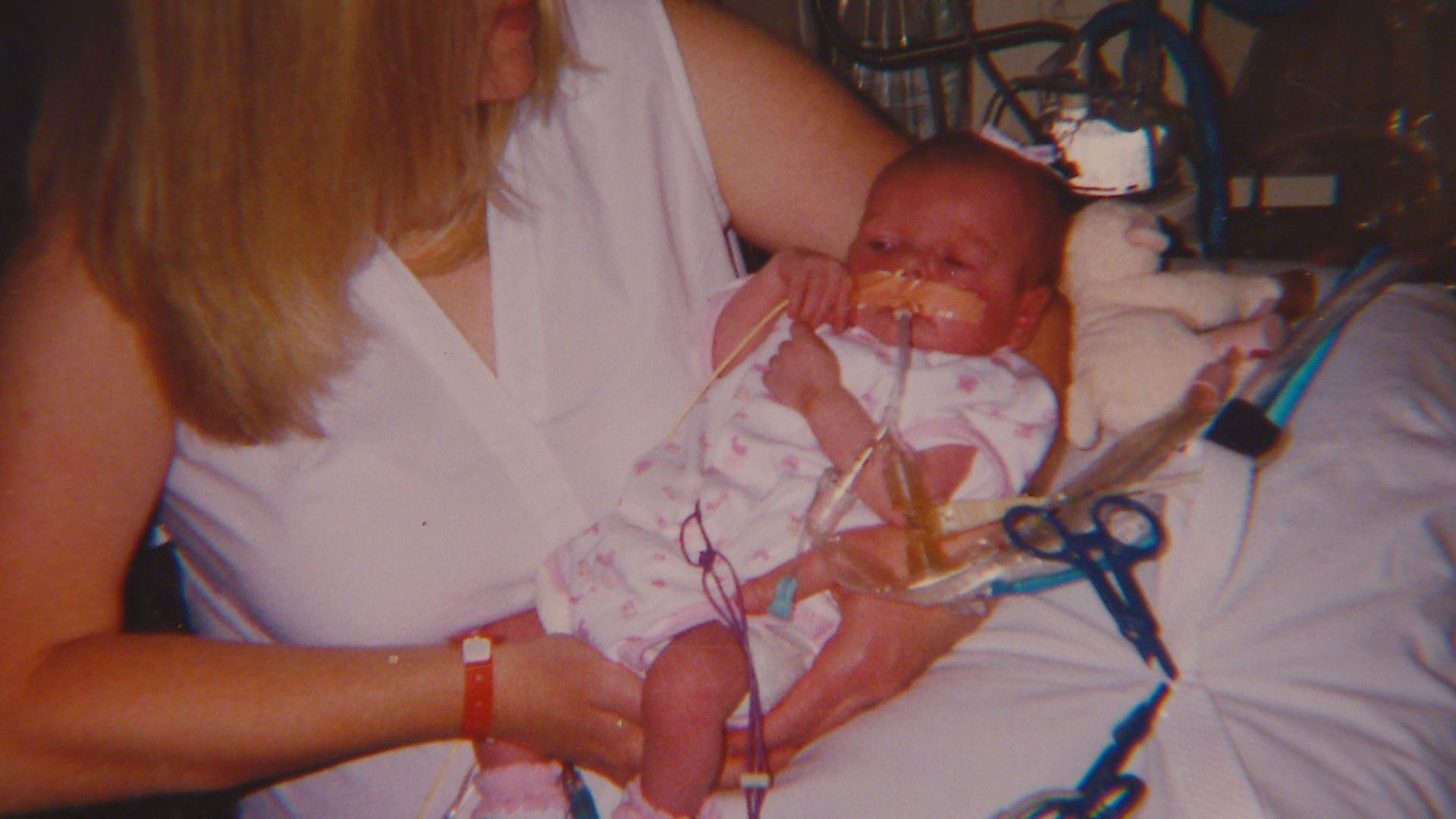Piper Kasnic was born with a Congenital Heart Defect in 2003. It was something that had gone undetected until her birth.
"She was very blue," Piper's dad David recalled. "We didn't know why, the doctor, the pediatricians they really didn't know why either. They thought they just needed to give her some oxygen. And clear out her lungs and so they took her away."
After several hours of treatment things did not improve. Doctors became worried there was something wrong with her heart. They decided she needed to be transferred to Children's Hospital for treatment.
"I went with Piper in the ambulance and my wife stayed there in the hospital. This was kind of pre-smart phone, cellphone technology so at the point we were kind of cut off from each other and didn't really know what was going on," said David.
Piper was immediately diagnosed with a Congenital Heart Defect (CHD) known as transposition of great arteries. In patients like Piper, the 2 major vessels that carry blood away from the heart-- the aorta and the pulmonary artery -- are switched. At just 5 days old, Piper had her first of several open heart surgeries.
"It was a long 12 or 14 hour surgery," said David. "She got out probably around 10 at night. About 2 the next morning they called us and woke us up and said she's not doing well, we're going to have to open her chest back up. At that point things didn't go well for the next several weeks."
Piper's parents drove their travel trailer to the hospital and parked it in the parking lot. That's where they slept for several weeks as their daughter fought for her life.
Several years later, with Piper's condition under control, her dad David began searching for an advocacy group to join, but couldn't find one. He decided to start his own.
About 3 years ago he and a friend founded the Pediatric Congenital Heart Association or PCHA to help other parents navigate through the process.
Congenital Heart Disease is the most common birth defect," said Dr. Dunbar Ivy, who has treated Piper since birth. He's the Chief of Pediatric Cardiology at Children's Hospital Colorado.
Even though about 1 in every 100 newborns are born with CHD, it can be difficult to treat.
"Since Congenital Heart Disease is a complicated defect there are relatively few centers that specialize in taking care of children with these problems," said Dr. Ivy. "It's important as a parent because it's so complicated that they really look into where they're going to have surgery for their child."
Often parents must make that decision within days of their child's birth. The Pediatric Congenital Heart Association offers information to help parents make an informed decision about their child's care.
"We know from a lot of studies that programs that are higher volume, that do more of this, do better at repairing these lesions, at following these children," said Dr. Ivy. "It's important for families to look into how many surgeons does the program have? How many surgeries do they do? In general we say you want to be at program that does over 100 surgeries."
The PCHA puts all that information in one place for parents to find.
"We wanted to create a web site that gives parents these resources to say OK, here's all these centers and here's what their outcomes are, here's what their data is. You get to make the choice on where you think is the best place to have care for your child," said David.
Piper, now 13, is able to do almost everything other children her age can do. She will, however, require lifelong care for her condition.
"This is kind of my life mission." said David. "I don't get paid to do it, I do it because of Piper, obviously and the other kids."


